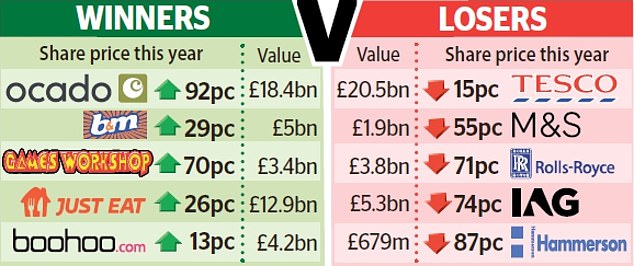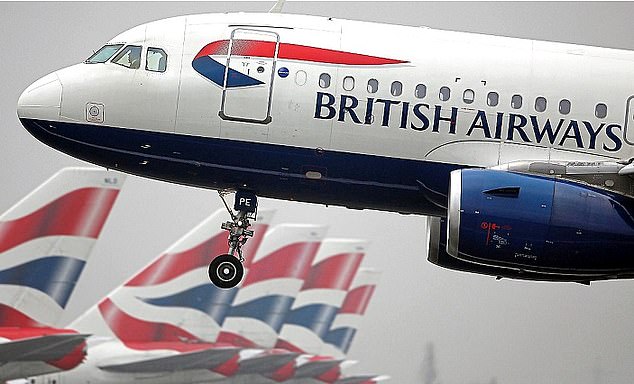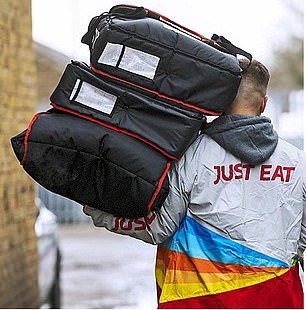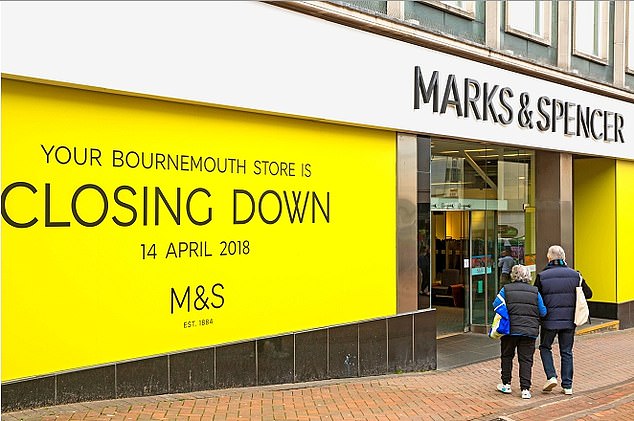The stock market winners and losers of lockdown! BA-owner and aviation giant IAG is now worth less than takeaway deliverer Just Eat
The Covid-19 pandemic has turned the stock market upside down.
A swashbuckling new wave of winners has emerged, cashing in on the changing habits brought about by lockdown and social distancing.
But some of the most august names in British business have been laid low as entire industries are pushed to the brink of collapse.

A swashbuckling new wave of stock market winners has emerged during the pandemic, cashing in on the changing habits brought about by lockdown and social distancing
Though some of these trends started before the outbreak, such as the rise of Ocado and the decline of M&S, the coronavirus crisis accelerated a huge change in the business landscape.
Investors are now navigating a world in which one of our biggest defence contractors, Rolls Royce, is worth barely more than a firm making tiny toy warriors, one of our leading shopping centre owners has a lower market value than a disgraced fast fashion operator and a company owning three European airlines, including our flag-carrier BA, is ranked lower in the pecking order than a fast food delivery business.
Prepare to be shocked at how the mighty have fallen – and how they have been overtaken by the upstart rivals that are the latest darlings of the stock market.
IAG v Just Eat


Nose dive: IAG, which owns three European airlines, including our flag-carrier BA, is ranked lower in the pecking order than a fast food delivery business
It is a sign of these topsy-turvy times that an aviation giant which is flying passengers around the world is worth less than a company that is delivering takeaway meals to their door.


Just Eat’s market value has soared skywards
IAG, which owns British Airways, Ireland’s Aer Lingus and the Spanish carriers Iberia and Vueling, is now worth just £5.3billion after its share price has nosedived since the start of the year.
Just Eat’s market value has soared skywards, however.
It has benefited as more of us were eating at home during the pandemic, taking its market value to a staggering £12.9billion.
Shares surged even higher over the past summer after it emerged that the British delivery firm would be gobbled up by Dutch rival Takeaway.com.
M&S v B&M
From John Lewis to Debenhams, the pandemic has visited even more pain on Britain’s once-great department stores.
For Marks & Spencer, the first retailer to make a £1billion profit in 2008, the virus has snuffed out early signs of recovery under boss Steve Rowe and chairman Archie Norman.


For Marks & Spencer the virus has snuffed out early signs of recovery under boss Steve Rowe and chairman Archie Norman
It is now pinning its hopes on a tie-up with Ocado, where the online grocer will deliver M&S food. Ocado says M&S wares are proving popular after the partnership was launched last month.
It’s too soon to tell whether the joint venture will be a long-term success and M&S shares are down 55 per cent this year, valuing the company at £1.9billion.
The contrast could not be greater with discount chain B&M. which sells furniture and homeware as well as DIY and garden products.
Founded in 1978, the bargain bazaar has found its form during the pandemic, with shares up 29 per cent this year.
This values the business, now in the FTSE 100, at £5billion. That easily outstrips M&S and has boosted the wealth of billionaire owner-managers, the Aroras.
While poor old M&S is shutting 100 stores, B&M will open 45 next year to cater for its fan base, which now includes price-savvy, middle-class shoppers. As the recession bites, its business model is looking shrewd.
Hammerson v Boohoo
Shopping centre owner Hammerson, at its height, was worth £5.5billion in 2015 but now it is valued at a mere £679million.
The landlord owns some of Britain’s best-known retail destinations, from Birmingham’s Bullring to Bicester Village.


Carol Kane founded fast-fashion sensation Boohoo which floated in 2014 with a value of £560m
It has been devastated by the crisis on Britain’s high streets, where falling visitor numbers have sent retail property values plunging in recent years.
Compare its fortunes to those of Boohoo, the fast-fashion sensation founded by Mahmud Kamani and Carol Kane, which floated in 2014 with a value of £560million.
That has since climbed to £4.2billion, as the online retailer’s formula of low prices and fast-turnaround clothing line-ups has won over younger customers in their droves.
Boohoo’s rise has coincided with a shift of shopping away from high streets to websites. That trend has been accelerated by the coronavirus pandemic.
Even a recent investigation by a barrister that found directors knew of poor conditions at garment factories in Leicester and failed to act fast enough has not prevented the company’s shares rising 13 per cent this year and they are worth ten times as much as five years ago.
Rolls-Royce v Games Workshop
Rolls-Royce, once the crown jewel of Britain’s mighty engineering sector, makes a substantial chunk of its income from the defence industry.
But the flagship company has been hard hit by the pandemic.


Rolls-Royce is worth barely more on the stock market than miniature war game company Games Workshop
Its shares rallied yesterday but it is still worth barely more on the stock market than miniature war game company Games Workshop.
As recently as 2014, Rolls-Royce was valued at more than £24billion. Currently, however, it is valued at just £3.8billion, compared with Games Workshop, which has a market capitalisation of £3.4billion.
Even before the coronavirus , Rolls was struggling to get over problems with its Trent 1000 engine.
Much of the company’s revenues come from servicing its engines – but the grounding of planes around the world has seen that income dry up.
And with airlines suffering huge losses, they are ordering fewer, if any, new planes.
Rolls is now looking for £5billion of emergency funding, including £2billion from its shareholders, in a desperate battle for survival.
What a humiliation for a company whose very name was once a synonym around the world for British excellence.
By contrast, Warhammer maker Games Workshop goes from strength to strength, with booming demand for its models and figurines since the lockdown was imposed.
Tesco v Ocado


Delivering the goods: Ocado’s share price has risen 92 per cent this year while Tesco stock is down 15 per cent
Tesco is the titan of the UK grocery market. It has 3,700 stores, 340,000 members of staff and turns over £63.9billion.
But briefly this month it lost its crown as the largest supermarket by stock market value to Ocado, whose revenues were just £1.7billion in 2019.
The online grocer’s share price has risen 92 per cent this year while Tesco stock is down 15 per cent.
Ocado’s share price has rocketed because its technology is expected to dominate, not just next year, but over the next 30 years.
Founder Tim Steiner says the pandemic has proven the worth of its business model.
In the next decade or two, he reckons its robotic warehouse technology, coupled with a booming online sector, will enable it to colonise a quarter of what is forecast to be a £2.8trillion global grocery market.

